Reflections on Tunisia
Mike and Jo spend their last few days in Tunisia soaking up the late winter sun at Hammamet.21 Feb - 28 Feb 08
Our Tunisian adventure ended pretty much as it began with a long wait at a ferry terminal and the Elephant strapped down in the belly of a ship. Although the passage was only 10 hours from Tunis we paid the extra for a cabin as we expected the ferry to be more crowded than the trip over from Marseille.
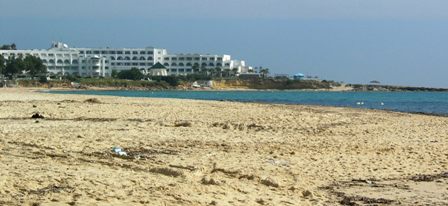
We spent our last week in Tunisia at the faded seaside town of Hammamet in a comfortable apartment with a sitting room overlooking a courtyard with a large fig tree that was the night roost for hundreds of noisy sparrows. We had a lazy week of late coffee and pastry breakfasts and after dinner strolls for gelato, with vigorous 2 hour walks each day to make sure we felt virtuous enough to enjoy our dinner.
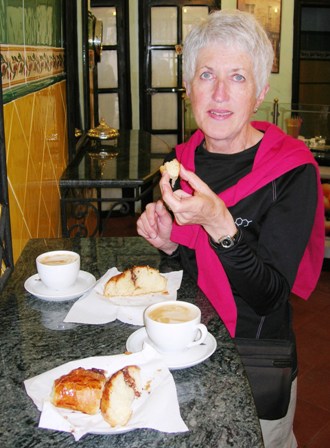
Apart from giving us a rest after many weeks of almost constant movement, the break gave us some time for reflection on our Tunisian sojourn. It has also marked the first six months of our journey.
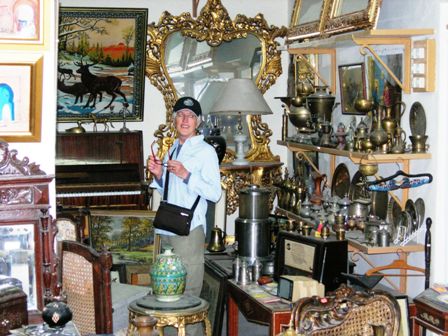
Wonderful antique shop in Hammamet. (Peter Pursey take note.)
We have felt comfortable and at home in Tunisia. The Tunisians have been good hosts and the country, while lacking the(geological) drama of Morocco, has some wonderful sights mainly in the deserted south. It certainly provides a better desert experience than the over exploited patch of sand that passed for the Moroccan desert.
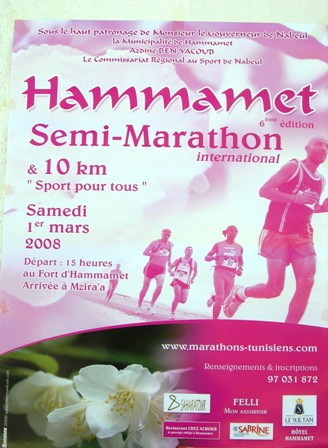
We left just before the Hammamet half marathon. This was a shame as we were both looking forward to the run.
Regular readers will have seen our wonder at the archaeological sites. These were stunning and numerous and were the highlight for us both. Visiting in the dead of winter we often had these places to ourselves with plenty of time to look for the small detail that gave a clue to the lives of the original inhabitants. Grand temples are all well and good, but the real story of their lives is more often in the plumbing!
(Apologies to Mike Russell)
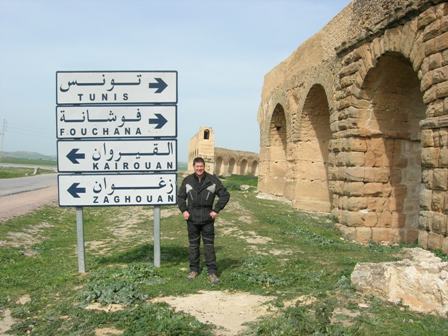
A section of the 134km aqueduct that carried water to Cathage built by the Romans and maintained in service for about 800 years.
We have eaten simply but well in Tunisia. The food is probably less distinctive than Moroccan fare but we could generally go to bed with full bellies for a few dollars. The small local restaurants all had basically the same menu and similar prices and all have at least one TV in the corner at full volume.
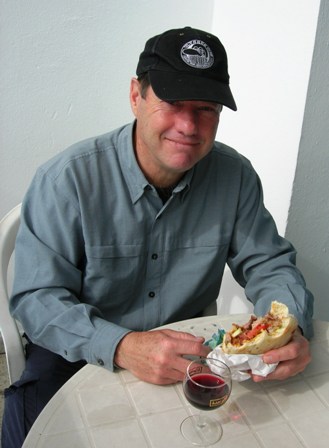
A sandwich (with tuna) and a glass of wine for lunch in Le Kef.
The Tunisians eat tinned tuna with almost everything. It dresses all salads, comes on pizzas, is an essential ingredient in most fast food and all sandwiches. It has even replaced the anchovies in puttanesca sauce. Sacrilege!
We have also seen and been seen by a measurable percentage of Tunisias school children. There are three levels of schooling here from the primary kids with kid-size bags to the young adults doing the four-year International Baccalaureate. Each of these groups has two sessions of schooling a day and the start times for the classes are staggered. This means that all day from 07hr to 18hr there are kids going to or from school and, since Tunisians only walk on the roadway, riding through any town is a slow process of weaving through throngs of young pedestrians. They do at least look well fed, smartly turned out and happy!
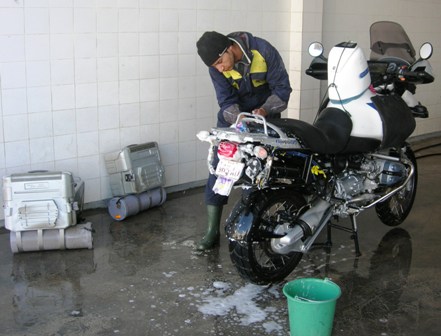
The Elephant gets a bath in preparation for Italy.
So, a good time overall. But we do have one gripe. Tunisians are, in our experience, the worlds best litterers. Our previous record holders were the Syrians who found new and interesting ways to dress the landscape with plastic bags, but these folk are a cut above that standard.
The Tunisian president has launched an anti-litter campaign but it has yet to have an impact on the behaviour of the people. It is common to see a parent unwrap a sweet for a child and throw the paper on the ground. People of all ages, both genders and all social classes act with the same assurance that they have a perfect right to turn the land into a rubbish dump. They dont seem to see the rubbish or care about it.
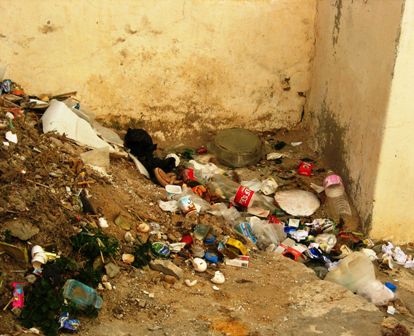
Rubbish is everywhere but no one seems to notice.
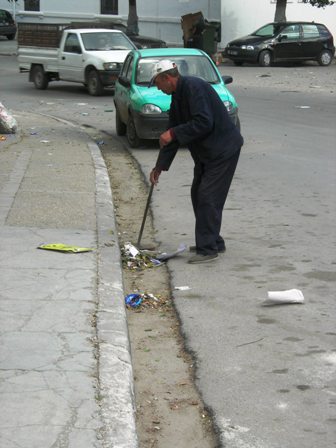
An army of street cleaners manage to keep the main areas clean.
The major urban and tourist areas are kept clean by armies of street sweepers who work throughout the night to get things tidied up for the morning. But out of these areas where there is no clean-up service the rubbish just mounts up and no one seems to care. In many small towns the inhabitants literally live in a stinking rubbish dump of their own making.
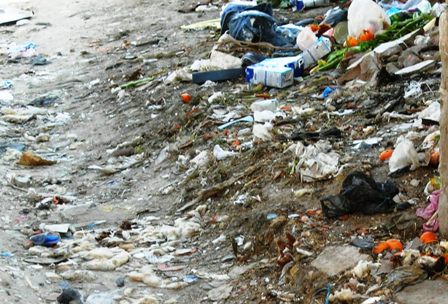
This is not to say that the people or their houses are dirty. Far from it, they are invariably clean and well presented. It is just that no one feels any responsibility for those spaces that are not their direct property.
For us travelling, this is a complete pain in the arse. No one wants to stop for a break in a rubbish heap, but any area that could be used as a stop would invariably be filthy. The Tunisians cant blame this state of affairs on anyone else. There are, from our experience, plenty of poorer people who manage to keep their plot neat and tidy.
OK, that is our one beef off the chest!
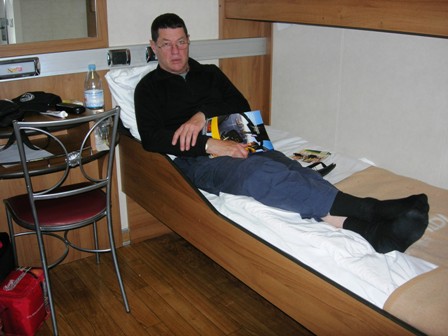
On board the ferry, Eurostar Salerno, we found our cabin and drifted into a peaceful sleep blissfully unaware that the Italian border police would find new and interesting ways to torture us in just a few hours time.
